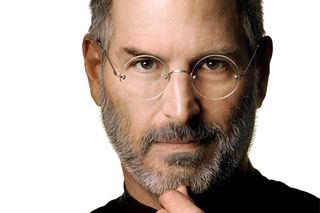
Today marks five years since the death of Apple co-founder Steve Jobs.
The iconic CEO died on 5 October 2011 after a long battle with cancer, aged 56.
It's an understatement to say that Jobs helped to revolutionise the technology industry as we know it. But at the same time, the influence of Jobs himself is easy to exaggerate.
As a single person, Jobs obviously couldn't have worked on every aspect of Apple's key product announcements during his reign, from the various iPods and iPhones to the iTunes Store, but yet each bear his unmistakable influence; that of simplicity and minimalism.
While none of Apple's designs were innovations in themselves - MP3 players, smartphones and online music stores all existed before their arrival - they dramatically reinvented each of their respective product categories through better industrial design and ease of use.
Take for instance the way the iPod competed with with rival MP3 players at the time of its arrival. It didn't even allow users to edit ID3 tags or delete music, but what it lost in flexibility, it made up for in a much simpler and arguably more elegant user experience.
There was as much emphasis on what's missing as what was included, and it was this element that was repeated throughout Apple's product line-up which made them unique and appeal to users who were simply looking for intuitive products that just worked (while also looking the part).
Get the ITPro. daily newsletter
Receive our latest news, industry updates, featured resources and more. Sign up today to receive our FREE report on AI cyber crime & security - newly updated for 2024.
Throughout the 1990s, Apple had trouble getting third-party retailers to stock and promote its products. But it was Jobs' initiative that saw the firm concentrating on online sales and opening Apple's own chain of retail stores to circumvent this. This was one of the biggest steps in what we now know as Apple's worldwide domination, and the rise of Apple 'fanboyz'.
Under CEO Tim Cook, Apple is run differently than under Jobs. Cook, who Jobs appointed before he died, has seen Apple take an almost softer tone, and has shed some of the winner-takes-all competitiveness that defined Jobs' control of Apple.
But differences between Jobs and Cook aren't that few and far between. Cook, who learned the 'Apple Way' from Jobs, might be more similar to his predecessor than originally thought. For example, Cook has continued Apple's obsession with secrecy, he also pushes his employees the same way Jobs did and, like his predecessor, isn't afraid of a fight, as seen by his stance against the FBI's demands Apple strip an iPhone of its password-attempt limit.
Then there's always the matter of money. Apple's profits and revenues are still up, and investors, who have been sceptical of the Californian company's potential for growth over the past few years, are still bullish on the company, valuing it at over 415 billion.
Under Cook, the same products - from the iPhone, Mac, and iPad to iOS and OS X - still exist and are being manufactured and updated, but the company has undeniably changed and expanded its focus.
One example of this change is the company's willingness to muscle in on the B2B market. Under Cook's guidance, the ideal tools for enterprise and capitalising on that has made Apple an entirely new player in the B2B sector, something that was traditionally the domain of the likes of Microsoft and Oracle.
Despite the challenges involved, Apple has leveraged the success of the iPhone, the changing landscape of the business world, and partnerships to turn its enterprise division into a hugely successful part of its enterprise.
And there's always the fact that Apple generated $25 billion in revenue from enterprise in 2015, a figure that rose 40% year-over-year, up from virtually nothing in 2013.
Cook is most definitely the new Jobs.




